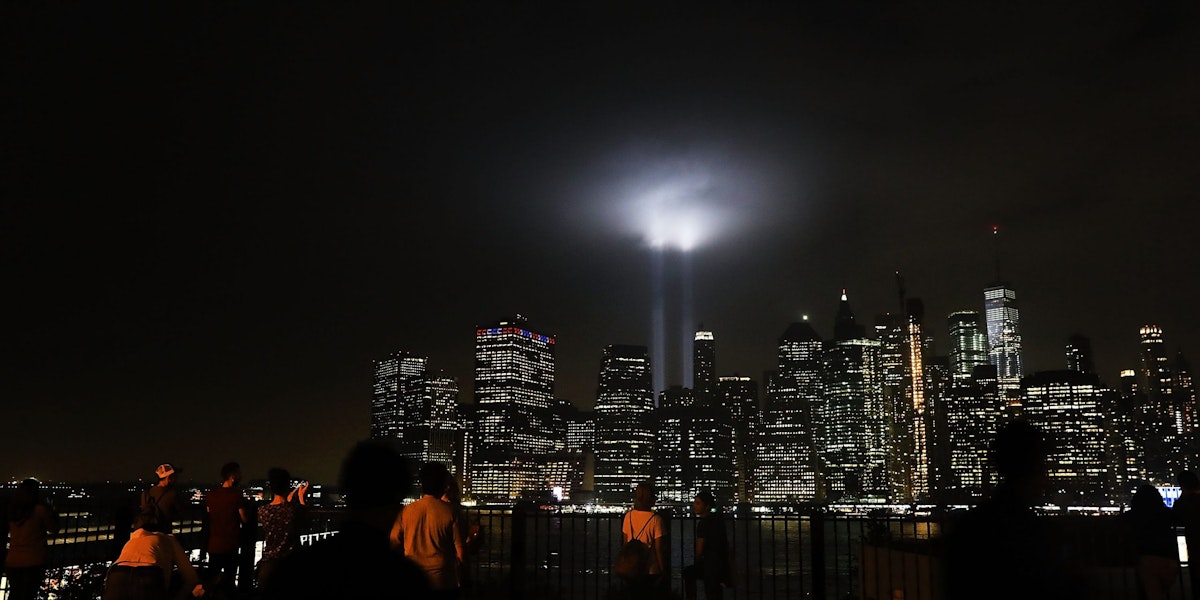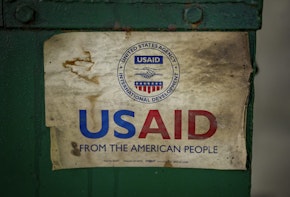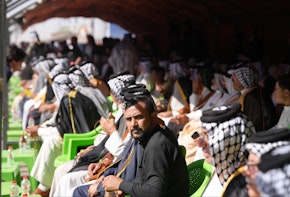Twenty years after September 11, 2001, we live in a world reshaped by America’s response to al-Qaeda’s attacks. The United States chased the impossible goal of absolute safety, overinvesting in security at the expense of every other dimension of policy. Today’s international order, like the United States’ crisis-ridden domestic politics, is the direct result of the ongoing “Global War on Terror.” Through many different phases since 2001, the United States has adapted everything from immigration policy to international alliances to fit its counterterrorism priorities.
The humanitarian and strategic disaster in Afghanistan serves as a stark reminder of the terrible cost of the “forever wars.” A generation of terrorism-focused American policy has, in many cases, left only bad choices—for people who live in the theaters of U.S. wars, like Afghanistan and Iraq, and for American policymakers, as well. Twenty years after the attacks, Century International’s fellows and contributors try to take stock of how the still-unfolding consequences of 9/11 distort public life—and how we might repair the damage.

Robbing Attention from Climate Change
Peter Schwartzstein
At some point we’ll look back at the early years of this century as an inflection point—a period when we could have staunched some of the worst environmental damage, but didn’t. And in few places will this failure be more keenly felt than in the Middle East. With soaring temperatures and fast-disappearing water resources, among countless other environment-related ills, the region is on the frontlines of climate change. Millions of its people will suffer horribly from this complete dereliction of duty.
At least part of the reason that the environment has been ignored in the Middle East is that, since the September 11 attacks, much of the energy that ought to have been lavished on the environment has instead gone toward an all-consuming pursuit of jihadists. This pursuit has monopolized state resources along with public discourse, and authoritarians have been happy to center foreign relations on counterterrorism. It has also sidelined science-savvy civilian actors who would have been better-placed to lead environmental initiatives—they have less strategic relevance in a political climate that prizes “stability” above all else.
Foreign aid and domestic revenues that could have gone to salvaging natural landscapes or bolstering climate resilience have instead fed security apparatuses. Chronically underfunded, most Middle Eastern environment ministries are in no position to act in the rare instances when they are granted the necessary authority.
Even environmentalists in some Middle Eastern countries, like Egypt, Iran, and Turkey, could be said to have suffered from the fallout of September 11. At a time when their voices ought to be elevated and their work nurtured, they’re being reassessed as threats and crushed by security services. Having stood by as these abuses took place—and at times endorsing them during the War on Terror—Western powers have displayed little appetite to advocate for these besieged activists.
There’s no telling with certainty, of course, what would have happened without September 11. It’s possible that Middle Eastern governments would have failed to respond to unfolding environmental crises as completely as they have other urgent crises. It’s also possible that global powers would have found other means of distracting themselves from climate action. (That’s crucial in Middle Eastern terms because, the energy producers aside, the region has made only marginal contributions to global warming.) But in the hyper-militarized, security-first, terrorism-fixated world that September 11 helped reinforce, concerted climate and wider environmental initiatives in the region probably never stood a chance.

Securitization Suffocates American Policy
Hafsa Halawa
The enduring legacy of September 11 continues to be the over-securitization of U.S. foreign policy, which has played out disastrously in the Middle East, North Africa, and beyond. The problem began in earnest with the launch of the so-called forever wars in Afghanistan, in 2001, and in Iraq, in 2003. It has since evolved into an all-encompassing civil and foreign service apparatus that is often led by security forces, stuck in the narrow lens of military force. As part of this evolution, U.S. foreign policy in the Middle East and North Africa has been effectively delegated to active or retired military personnel—especially in countries where U.S. policy is most influential.
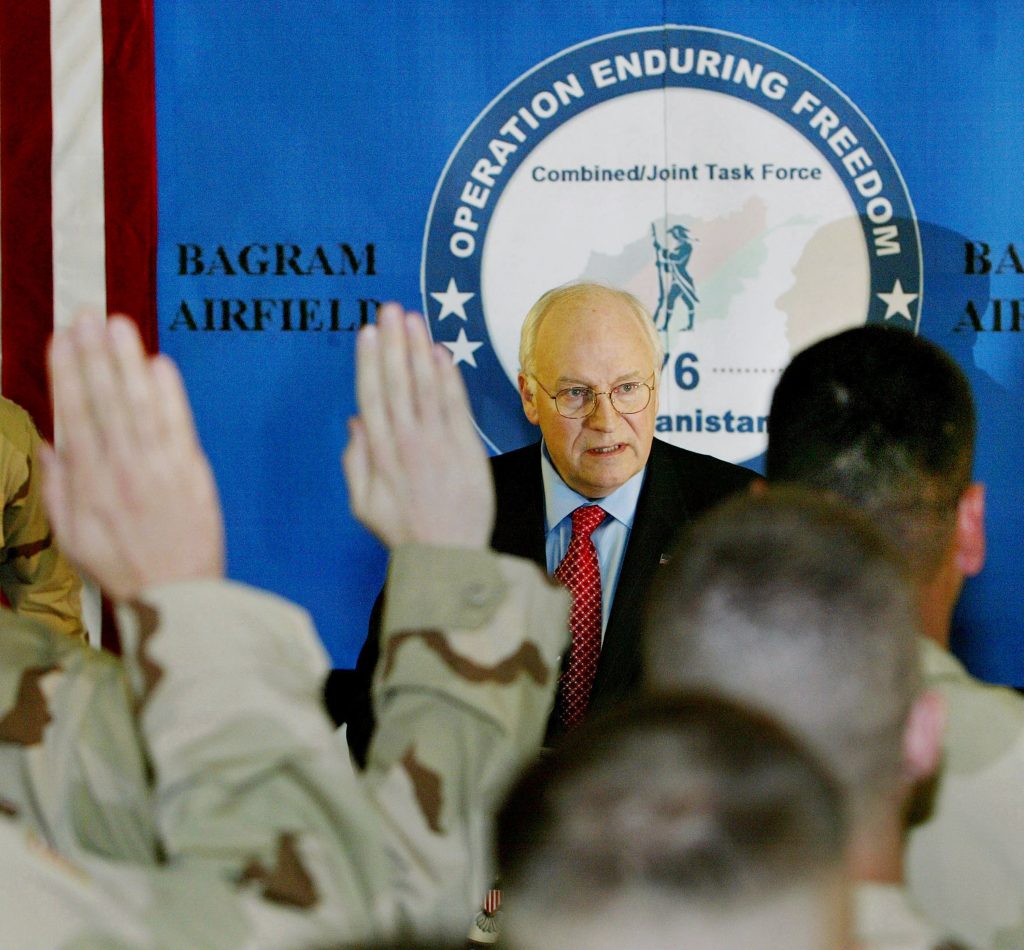
Even where they are carried out by civilians, U.S. policy and research are now rooted in hard security objectives. This is true even in inherently civilian sectors—development, governance and public service delivery, the U.S. democratization agenda, and the diplomatic corps.
Even where it is carried out by civilians, U.S. policy and research are now rooted in hard security objectives.
In this context, and after two decades of constant military interventions, American intentions in the Middle East have become murky. Conspiracy theories run rife across the region—and are promoted by opportunistic authoritarians. Anti-American sentiment in the Middle East has reached an astronomical high.
In the United States, the securitization of foreign policy has also supported a significant erosion of empathy, alongside growing Islamophobia. Officials from public institutions use callous language. Politicians with military backgrounds have outsize profiles. The priorities of many journalists and most U.S.-based media institutions are also skewed toward securitization, as are even some U.S.-funded civil society interventions. This shift in language and priorities has led to increased violence and hate crimes against American Muslims, and created the space for the administration of Donald Trump to introduce the “Muslim ban” in 2017.
Now, even as much of the U.S. electorate has grown weary of the forever wars, there is still not a critical-mass shift of views on Arabs, Muslims, or the Middle East. Instead, there is a new push to retreat from the region, which the administration of Joe Biden has embraced. This retreat could provide an opportunity for the United States to introduce new foreign policy rooted in civilian practice, and to wind down militarization. But there are as yet no signs from the Biden administration that lessons have been learned, or that it is attempting to meaningfully change course and reform the legacy of September 11.

A Costly Misunderstanding of al-Qaeda
Sam Heller
Twenty years on, it is still staggering how badly the American policy community and media misjudged the scope of the foreign policy problem presented by the September 11 attacks. In the days after the attacks, President George W. Bush famously discouraged the idea that the al-Qaeda members who carried out the attacks represented Muslims or Islam. Despite that, American policymakers and commentators still spun up a “why do they hate us?” discourse about Arab and Muslim antipathy to the United States that was premised on a basic misreading of al-Qaeda. These American thought leaders, by centering that big and numerous “they,” presumed some causal relationship between popular sentiment in the Arab and Islamic world and the capabilities of this relatively small militant organization. They presumed wrong—with disastrous results.
The September 11 attacks and al-Qaeda’s earlier bombings presented a specific problem. They were the work of a discrete set of perpetrators: a several-hundred-person organization centered, in 2001, in one of the more remote and austere corners of the Islamic world. It’s true that al-Qaeda hoped to position itself as the vanguard of a global Islamic revolution. Yet this small-scale elite organization did not enjoy meaningful mass support and, functionally, it did not require it. It did not depend on broad support, for example, to recruit its few operatives or fund its attacks.
Meanwhile, whether Arabs, Muslims, and others around the world approved or disapproved of the September 11 attacks was basically immaterial to U.S. national security and the threat al-Qaeda represented, properly understood. The attacks were not somehow contingent on Arab and Muslim popular support, even if galvanizing mass opinion was one of the plotters’ objectives. General anti-Americanism or religious fundamentalism did not, in any real way, produce or enable September 11.
On September 12, 2001, then, the actual policy challenge facing the United States was how to neutralize a particular organization: al-Qaeda. Instead, Americans started mythologizing this Arab and Muslim “they,” and convincing themselves that they had to mobilize U.S. power in service of quixotic efforts to promote democracy or religious “moderation,” and to remake the Arab and Muslim world generally. It was an addled, wrong-headed understanding of September 11 and al-Qaeda. And this misjudgment led to a similarly wrong-headed U.S. policy reaction—including the 2003 invasion of Iraq—whose insane, destructive consequences we are still dealing with twenty years later.

The Normalization of Torture
Naira Antoun
About six or seven years after the September 11 attacks, I had a job that entailed visiting schools around the UK doing workshops and talks on media representations of Muslims, often as part of “citizenship” or “engagement” programs. Particularly striking was that white children at these schools often had very strong views about Muslims—and about the utility of torture. This held true whether the school was public, private, well-resourced, or more deprived, whether it was urban or rural, and whether it was culturally and ethnically mixed or more homogeneously white.
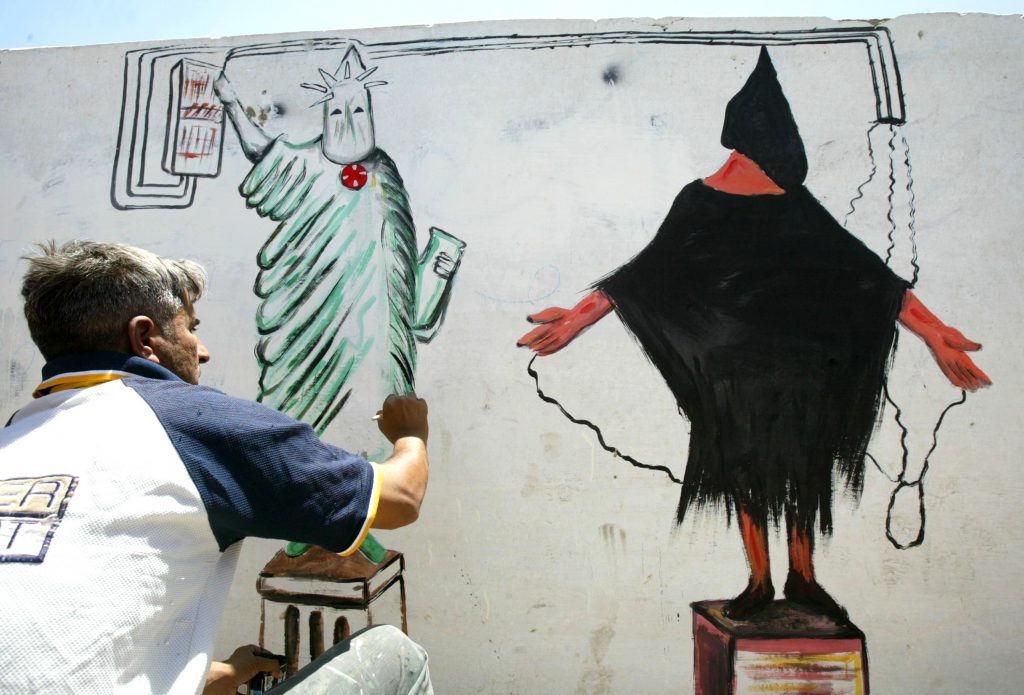
The first time I heard a sweet-enough ten-year-old justifying torture for the greater good, I was somewhat shocked. But as it recurred again and again, I understood it as a clear sign of how September 11 had shaped this generation.
These experiences happened after images of torture from Abu Ghraib were on the front pages of newspapers and had triggered a real, though limited, public debate. These young people saw terrorism—famously one of the most contested concepts—as something very clear: it was always committed by nonstate actors and was indelibly tied to Muslims. Of course, these connections were not entirely new. Edward Said’s book Covering Islam, about Western media’s treatment of Muslims, was originally published in 1981, for example. And what we might call colonial and racist imaginaries—the set of values and symbols that constitute social identities—are embedded in the educational system such that young people may often espouse views very clearly shaped by these imaginaries.
In the War on Terror, torture was no longer cast as medieval. Instead, it was something the contemporary moment clearly called for.
But even though the ideas and biases had long-established precedents, the War on Terror and its justificatory discourses and rhetoric were especially brazen. Torture was no longer cast as medieval or as belonging to more backwards parts of the world, but was rather something the contemporary moment clearly called for, such that even children could easily discuss torture without moral qualms. This rhetoric contributed to a growing public desire for torture, which scholars such as Lisa Hajjar describe as intimately tied to the rise of Trump—and to a form of politics that we might now call Trumpism without Trump.

Economic Sanctions Gone Too Far
Rohan Advani
Invasion, occupation, torture, surveillance: these are the most notorious excesses of the War on Terror. Less noticed but equally important, however, has been the broadening of U.S. economic sanctions policy.
Before the September 11 attacks, anti-money-laundering legislation was the main weapon against terrorist financing. But after the attacks, Bush expanded and deepened U.S. sanctions policy under the 1977 International Emergency Economics Power Act (IEEPA), and passed the 2001 Patriot Act. Other pre-September 11 laws were read more expansively, broadening the extraterritorial reach of American law and jurisdiction. Existing executive orders pertaining to terrorism in the Middle East were expanded globally. Targeted groups now included those “associated” with designated terrorist groups, and the United States could now block U.S. assets of foreign banks that refused to freeze terrorist assets.
The global reach of these laws affected not only U.S. financial institutions operating in other countries, but crucially, non-U.S. financial institutions. Given the importance of the U.S. dollar and U.S. Treasury securities to the global financial system, foreign banks around the world became increasingly paranoid about the expanding American sanctions. The Arab Bank in Jordan, for example, was embroiled in a long lawsuit for allegedly holding accounts with Hamas, though it was unclear whether any of the money was used for terrorist financing rather than legal governance outlays.
Geopolitical foes have also faced increased U.S. sanctions with explicit reference to anti-terrorist legislation. U.S. sanctions on Syria in 2004 and on Iran in 2012 both make explicit references to executive orders that were issued in September 2001. The state-owned Commercial Bank of Syria and SyriaTel were sanctioned by the U.S. Treasury in August 2011 under Executive Order 13382 (2005), which targets “proliferators of weapons of mass destruction.” The 2019 Caesar Act requires the Treasury Department to determine whether the Syrian Central Bank qualifies as being subject to further sanctioning under Section 311 of the Patriot Act.
Regardless of whether such institutions are complicit in terrorist financing, sanctioning large private and public institutions often has debilitating second-order effects for societies. Money used for purchasing arms and artillery can also be used to purchase wheat and milk. Fertilizers are used in both explosives and agricultural production. The freezing of U.S. assets can put immense pressure on a country’s currency exchange rate, sometimes leading to devastating inflation.
If we are to rethink and challenge some of the enduring legacies of the War on Terror, the expansion of U.S. sanctions policy, often beyond the confines of counterterrorism, will have to be included as part of any broader effort.

Israel’s Narrow Security Paradigm Victorious
Dahlia Scheindlin
On September 13, 2001, Le Monde published the now legendary headline “We Are All Americans.” In Israel, even as Israelis were aghast at the attack, a certain “you are all Israelis” attitude could be heard. Benjamin Netanyahu, who had lost the election for prime minister in 1999, had been telling American audiences since the 1980s that terror was the true threat to the world. In this view, security and survival were the shared, towering interests of the United States and Israel, and the Israeli–Palestinian conflict was a sideshow at best, or a local franchise of the global Islamist terror threat at worst.
Washington would make the War on Terror central to its own foreign policy, sacrificing human and civil rights and, apparently, sound judgement about when and how to wage war.
Israel, for its part, was reeling after the first year of the Second Intifada and was rapidly losing even its highly circumscribed interest in a comprehensive political solution to the Israeli–Palestinian conflict. For Israel, the September 11 attacks provided the ultimate argument that all terror is equal. How could anyone push Israel into concessions with Palestinians—purveyors of suicide bombings against civilians—now? The leadership set about reducing a multi-decade problem of political conflict and occupation to its security elements alone.
In the decade following September 11, Israel learned to treat its political conflict exclusively as a security problem to be managed.
In the decade following September 11, Israel learned to treat its political conflict exclusively as a security problem to be managed. U.S. policy in the region became lackluster—the Road Map of 2003 set out an interim course, followed by Israel’s withdrawal of settlements from Gaza, while maintaining other forms of control over Gaza in the name of security. It was a decade of interim steps to nowhere. Subsequent negotiations under American auspices subscribed to Israel’s security-driven approach, without ever changing Israel’s incentive structure to conclude a comprehensive agreement.
By the end of the decade, U.S. wars in Afghanistan and Iraq were remaking the region. The Arab uprisings swept aside the last traces of old power dynamics, and, in the eyes of the world, eclipsed the urgency of the Israeli–Palestinian conflict. Israel’s global and local outlook has won—for now. But the fresh nightmare in Afghanistan should remind Israel that forever wars and occupations end badly for all.

Twenty Years of Destruction
Aron Lund
In remembering September 11 and its dark aftermath, there are plenty of disasters to choose from. The al-Qaeda attacks were an exercise in studied sadism, and they would serve as a trigger and a template for a campaign of jihadist violence that continues today. The ensuing anti-Muslim backlash fed into a wave of far-right hatred, perfectly attuned to the social media polarization of the day, which I fear is still building up to its full tsunami-like dimensions. And in an era of exponential technological development and eroding liberal values, the poorly managed expansion of state surveillance constitutes a serious threat to human freedom.
As someone who studies the politics of the Middle East and North Africa, however, the consequences for that region are what really lingers. Twenty years of Western war in Afghanistan have just come to a chaotic end, but the Middle East still reels from the 2003 Iraq invasion, a product of the paranoid belligerence unleashed on September 11, 2001. There’s no doubt the Arab world would still be a troubled place, had the Iraq War never happened. But there is also no doubt that today’s Middle Eastern misery is linked to and shaped by what happened in 2001 and 2003. Iraq continues to radiate instability and the region is awash with sectarian conflict and Saudi–Iranian tension—problems that predate 2001, but not in the form or on the scale we’ve seen after the Iraq War.
Living in Damascus sometime after the U.S. invasion, I still recall how my Syrian friends—ordinary young guys who struggled with university, dreamed of moving to Dubai, and were forever out of cigarettes—were absolutely enthralled by the Iraqi uprising against the U.S. occupation. They’d share tall tales and grainy videos of attacks on U.S. soldiers, imagining these proto-Islamic State jihadists as Robin Hood-like figures. That’s the kind of social acceptance their sectarian militancy won in those years, and it was the start of a surge of extremism that would sweep the region in years to come, culminating just as the Arab uprisings shattered its decrepit police states. It would not be long before the jihadists had rooted themselves in Syria, too, feeding off of the fear and chaos of yet another civil war.
Twenty years after Bush declared his War on Terror, so much has changed that the crimes and missteps of those early years seem faded and irrelevant. But they’re not. The Middle East took a hard turn after September 11, and it is still traveling the road then chosen—littered with death and destruction. Twenty years later, I still find it unforgivable.
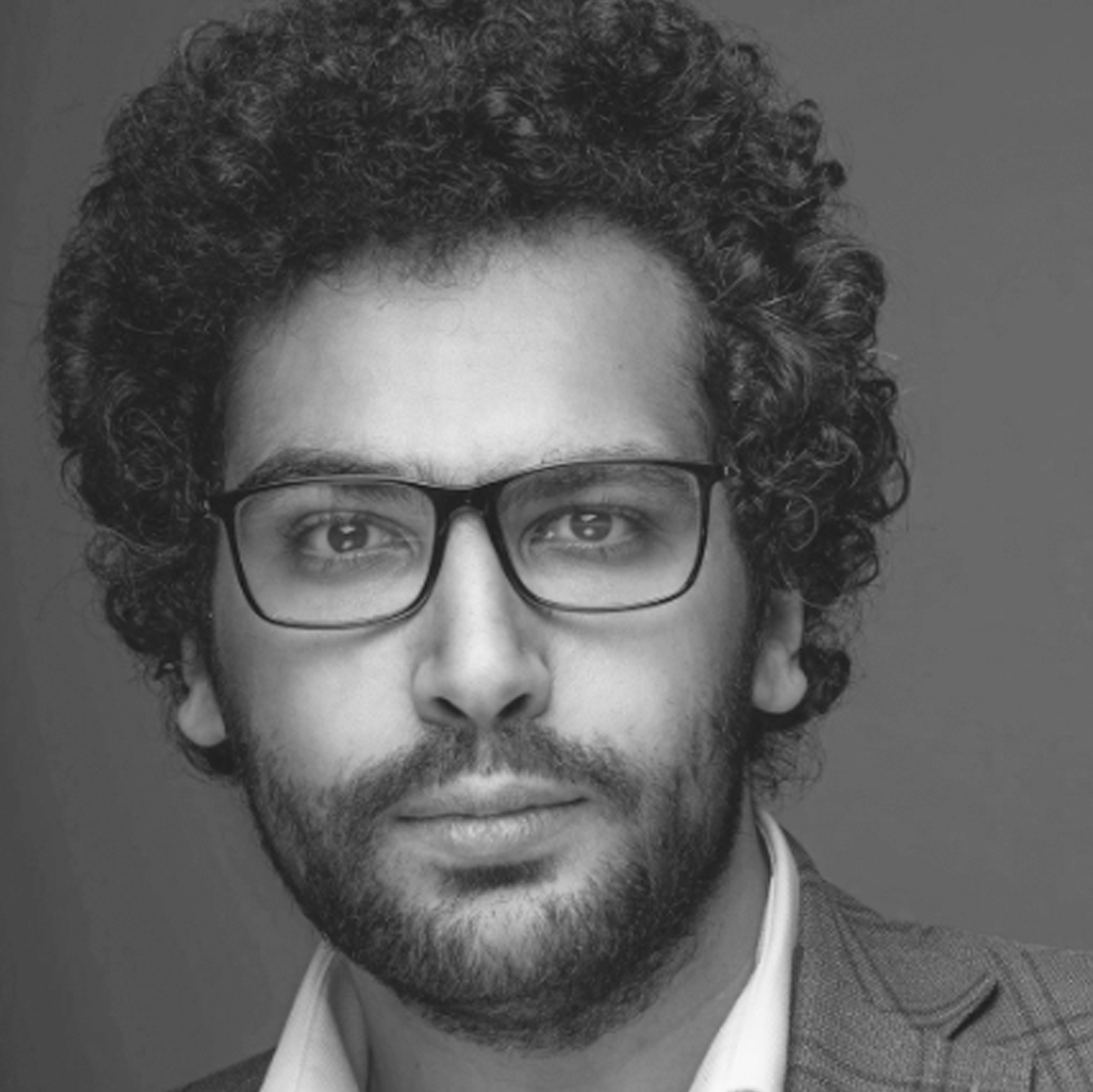
The Betrayal of Rights
Abdelrahman Ayyash
Less than two years after the September 11 attacks, Bush stood on the aircraft carrier USS Abraham Lincoln and announced that the “United States and [its] allies have prevailed” in Iraq. Behind him was the infamous “Mission Accomplished” banner. Eighteen years later, Biden effectively described the U.S. mission in Afghanistan as accomplished, as American troops withdrew and desperate Afghans clung to departing planes at the Kabul airport. Both statements and the bloody events that followed them should make us wonder: What mission has really been accomplished, twenty years after September 11?
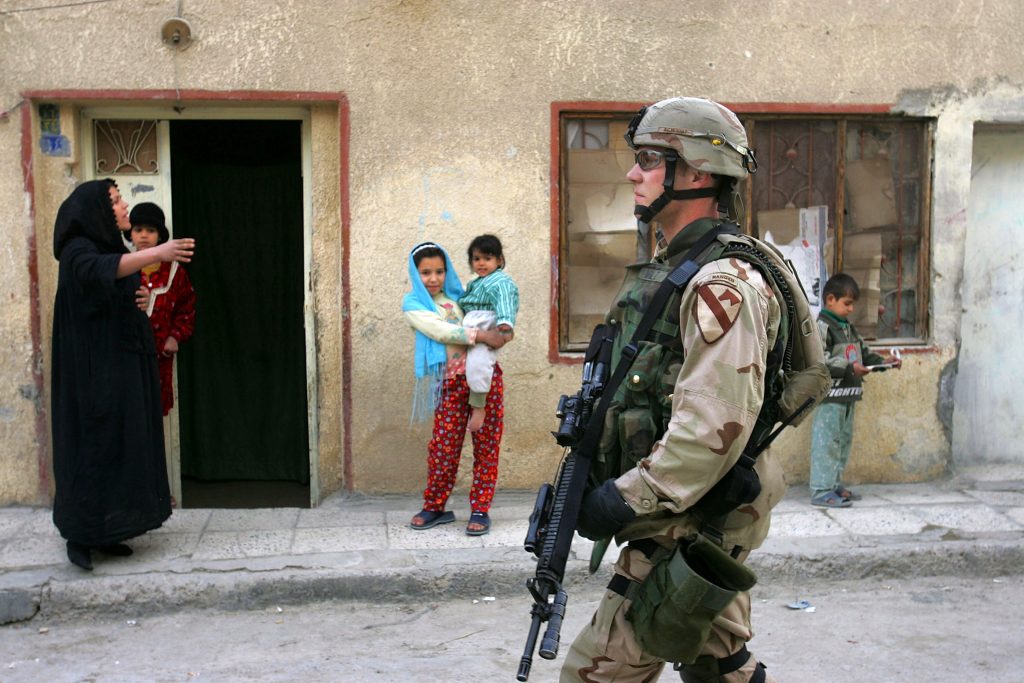
If the mission was to bring peace and security to the region or to advance the interests of the United States, it has failed. Iraq has fallen into an abyss and will need a very long time to recover, if it ever does. Afghanistan is back in the hands of the Taliban, and the Global War on Terror seems to have done more to globalize terrorism than combat it. Further, it has increased antipathy to the United States in the Middle East and elsewhere. Strategically, it has also yielded power to China, as the United States became overextended and then retreated.
Under the guise of combating terrorism, Washington normalized a “state of exception” by passing laws (such as the 2001 Patriot Act) that expanded the government’s authority and undermined personal freedoms and the balance of powers. Dictators of the world have since used the new American model to justify illegal surveillance, disappearances, unlawful detentions, and extrajudicial executions—including against peaceful dissidents.
Dictators of the world have used the new American model to justify surveillance, disappearances, unlawful detentions, and extrajudicial executions.
The War on Terror has proven the folly of U.S. military interventions. Afghanistan shows that a foreign military force cannot defeat a domestic grassroots rebellion, especially if it is fighting against a corrupt, mostly foreign-backed government. President Ashraf Ghani fled Afghanistan before the last U.S. soldier departed the country, underlining that Washington bet on the wrong horse. The United States is making the same mistake elsewhere by enabling dictators. In Egypt, for example, the United States has so far provided annual military aid without conditions related to rights abuses—even as the country endures the worst crackdown on freedoms in its history.
If Biden wants to ditch previous administrations’ toxic War on Terror legacy, he needs to bet on the global principles of human rights and freedoms—rather than backing rights-abusing strongmen who offer the illusion of stability.

The War on Terror Comes Home
Amanda Rogers
Mere weeks before the twentieth anniversary of the September 11 attacks that launched the Global War on Terror, Afghanistan is once more under Taliban control. Shortly after government forces surrendered Bagram Air Base—the site of some of the War on Terror’s most egregious abuses—Taliban fighters reportedly released scores of detainees from the nation’s largest and most notorious prisons. In an eerie, symbolic condemnation of the endless War on Terror, those released included alleged members of both al-Qaeda and the Islamic State.
Today, the United States faces more enemies than it did on September 10, 2001—and in a pattern no longer deniable to any but the most partisan, the United States has established a reputation as a powerful but unreliable ally. The decline of the United States’ stock began with the unlawful 2003 invasion and occupation of Iraq, which much of the world viewed as a fiasco in the making. The invasion of Iraq squandered the surge of global goodwill in the wake of the horrific September 11 attacks. Twenty years after the day that first spawned the many-headed hydra of the U.S. War on Terror, the perceived betrayal of Afghanistan only underscores the implosion of American global credibility.
Just as troubling, but far less commonly remarked upon, is the catastrophic impact of the War on Terror’s domestic blowback. As historian Kathleen Belew shows in Bring the War Home, her seminal study of the post-Vietnam white power movement (and as decades of domestic attacks after September 11 have amply demonstrated), the aftermath of war and foreign conflict constitutes an inevitable surge of racist militants, well-prepared to undermine the “homeland security” our response to the attacks was meant to preserve.
Two decades after the September 11 attacks, the American domestic political climate is one of unprecedented polarization. Trump’s presidency, paradoxically, both normalized extrajudicial and unconstitutional measures in the name of “fighting terror” and spawned a right-wing isolationist movement. At the same time, the Republican party has undergone a transformative shift toward populist demagoguery, far-right extremism, and the cynical embrace of conspiracy theories like QAnon. This transformation has jettisoned Bush’s legacy as a president beloved by the Republican party and neoconservatives—in no small part due to his interventionist legacy.
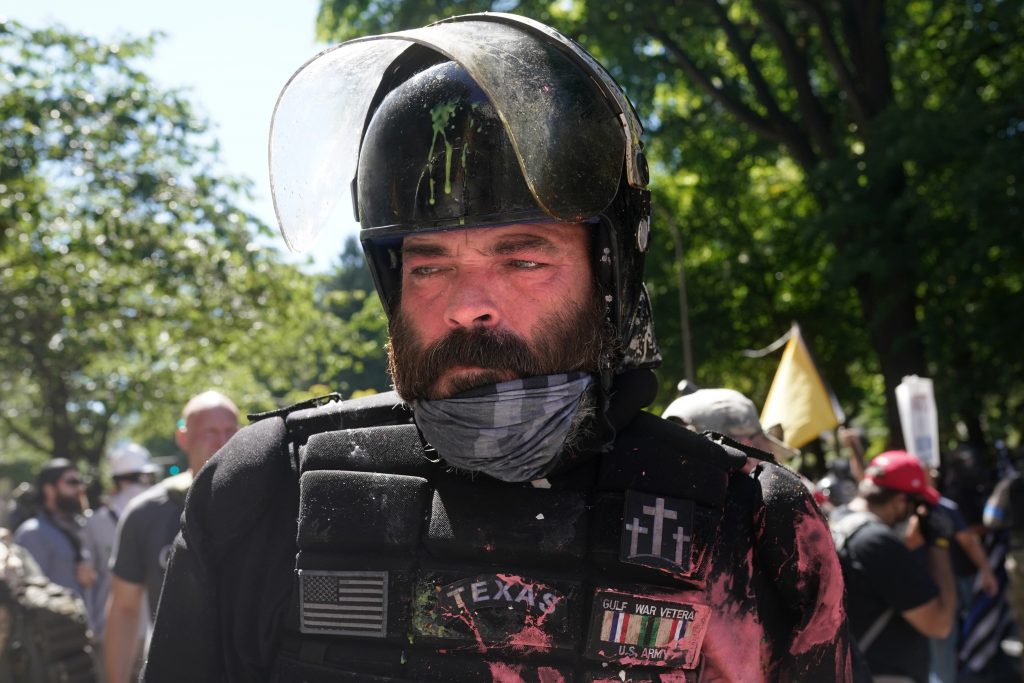
In the increasingly fractured American body politic, there remains, perhaps, one point of bipartisan agreement: the Global War on Terror has been an unmitigated disaster. A similar consensus is shared by the international community. The United States faces more threats to its security than it did before September 11. Make no mistake: the blowback will continue to take place on multiple fronts: “over there” is “over here.” Ku Klux Klan leader Louis Beam issued a call to fellow white supremacist veterans after the Vietnam War that is sure to echo into our present: “Bring the war home.” If the response to September 11 revealed nothing else, the American War on Terror provided proof that the world is a battlefield.

Zero-Sum U.S. Foreign Policy
Sajad Jiyad
The greatest impact of the horrific September 11 attacks on U.S. foreign policy has been the securitization of American engagement in the Middle East and elsewhere, leaving little room for other approaches and driving a zero-sum narrative. The U.S. withdrawal from Afghanistan highlights this securitization, and reinforces the notion that either there are American boots on the ground—and therefore American interest and influence—or a disengagement because there is no bilateral security relationship contingent on a foreign troop presence.
In Iraq, the same problem has persisted for nearly two decades, and the same outcome is likely. American policymakers believe they cannot have influence in the country or a meaningful engagement without a military presence—and yet that presence completely overshadows any other nonmilitary engagement. In actual fact, Iraq does not pose any direct threat to the United States, and the U.S. public has no interest in committing nonmilitary resources to help Iraq.
There is a central unresolved issue for the United States with regard to Iraq: Washington is involved in Iraq due to a perceived foreign strategic interest, and because of the pressure from allies and the need to oppose Iran. But the reality is that Iraq is not of significant value to U.S. foreign policy.
A resolution of this issue is being postponed because the security approach dominates thinking on the Middle East. American foreign policy has become boxed in by the outcomes of September 11, where every bilateral relationship is gauged by the importance to U.S. national security. The administrations of Barack Obama, Trump, and Biden have all taken small steps to disengage from Iraq and other countries, but without significantly challenging post–September 11 policymaking. Thus, the securitization of U.S. foreign policy is likely to continue until the United States realizes it can step out of the box tragically created twenty years ago.

The Conspiracy Era
Eamon Kircher-Allen
The United States still lives in the long shadow of the War on Terror. The September 11 attacks shocked the country to its bones. Many Americans almost greedily accepted rollbacks in civil liberties that would have been unthinkable before the attacks. Daily life became securitized, the airwaves saturated with threat-level warnings that were short on specifics and long on fear. The nation became a bunker. Rights and cherished principles were cast aside. There was John Yoo’s memo justifying torture, extraordinary rendition (or, in plain English, kidnapping), the long imprisonment of hundreds of “detainees” in Guantanamo without due process, the vast expansion of wiretapping.
The War on Terror also opened the door for a type of opportunistic and deceptive politics that had long been waiting in the American wings. It is still stunning to think back and ponder the total cynicism of the Bush administration when it sold the American people the invasion of Iraq on false premises. Colin Powell spoke before the UN Security Council with cheap props, warning the world of a danger that didn’t exist. Today, that image defines the War on Terror era almost as much as the pictures of the horrific torture at Abu Ghraib or even the towers collapsing. The neocons had staggering hubris—they would remake the Middle East with American might, and they were willing to mortgage the trust of the American people to get there.
It is still stunning to ponder the cynicism of the Bush administration when it sold the American people the invasion of Iraq on false premises.
Of course, there were earlier episodes when U.S. military action undermined the trust of the electorate in government—especially the Vietnam War. But the War on Terror reached into every corner of politics, law, and society. The American loss of trust was proportionate. The Iraq occupation evolved into an all-out civil war, Afghanistan became an intractable slog, and the Great Recession began. Americans woke up to their betrayal.
This awakening didn’t always get the facts right, however. While just 36 percent of Americans supported the Iraq invasion by 2007 (down from 73 percent at the start of the war), many took refuge in nativism and conspiracy theories. There were the birthers, the 9/11 truthers, the racists who saw immigration as a conspiracy against white America. Aspects of the War on Terror were demonstrably a neocon conspiracy. It underlined the average person’s true alienation from power. Who’s to say any other conspiracy couldn’t be true?
The most popular conspiracies played to fears and biases, and a new crop of opportunistic politicians stood ready to take advantage. Trump has been the most notable. There are surely others to come.
Other forces have contributed to the spread of mistrust among Americans, to be sure—such as economic inequality and supercharged misinformation on social media. But the deceptions of the War on Terror remain seminal. They rent the fragile fabric of American governance in ways that will take at least another generation to mend. Trust is the great intangible casualty of September 11.

Problems That Bombing Cannot Solve
Thanassis Cambanis
Nearly twenty years after 9/11, I visited the ruins of Mosul’s Old City in northern Iraq, which offer a bleak object lesson in how little how counterterrorism has evolved during the years that it has monopolized so much of the world’s resources and lives.
Over the course of a generation, the United States has built an intricate machinery for counterterrorism warfare. High-tech American surveillance and airpower track human targets and bombs from the air. A small number of highly trained Americans—some of them elite military personnel, many of them private contractors (historically known as “mercenaries”)—are needed on frontlines to identify targets. Most combat troops these days aren’t Americans, but local partners—Iraqis, Afghans, Yemenis, or participants in any of the other dozens of conflict zones that have been engulfed in the Global War on Terror.
This new way of war has enabled the United States to fight genuinely horrifying enemies like the Islamic State with low numbers of American casualties. The question is how well this type of warfare really works.
Have we found a sustainable way to curtail the reach of nihilistic, murderous organizations like the Islamic State, al-Qaeda, and like-minded sibling organizations in Syria, the Sinai, and elsewhere? My research in Mosul and its environs suggests that the answer is “no.” We are unlikely to see an end to jihadist violence in the Middle East by bombing extremists to smithereens, along with their enablers, neighbors, and victims, and then subjecting their supporters to collective punishment.
Mosul was the capital of the Islamic State caliphate, and the site of some of the most unforgettable horrors of our times. The Islamic State reveled in gory, sensationalistic violence, from sexual slavery and rape to televised murder and torture.
To roll back Islamic State rule, the United States collaborated with the Iraqi government, a motley array of militias, and international partners that included NATO allies and rivals like Iran. The campaign was technically a military success. The caliphate fell, Mosul was liberated, and the surviving Islamic State fighters fled to the desert.
Today, however, four years after the liberation of Mosul and twenty years after the September 11 attacks, the ideas of the Islamic State are alive and well among its supporters in Iraq. More than one million people, the majority of them children, remain displaced from their homes; many are not welcome to return because their neighbors and relatives consider them Islamic State sympathizers.
That they might well be guilty of what their neighbors suspect makes their limbo all the more alarming. We have the technology to reduce entire cities to rubble, and have done so repeatedly in the Middle East since September 11, 2001. We do not, however, have a way to create better governance in places like Iraq, Afghanistan, Syria, or any other of the many battlegrounds of the War on Terror. A sustainable solution would entail states competent enough to rule their territory effectively and able to respond to terrorist threats with law enforcement action, but also with nonmilitary methods.
The United States has faced terrorism ineffectually at home, unable to come up with a recipe to deal with coup-plotters and white supremacists. It has fared no better abroad, where it has operated without any limits on civilian casualties or destruction of infrastructure.
Mosul is one of the fresher chapters in the War on Terror. Unrepentant Islamic State supporters in and around the city dream of a resurgent Islamic State.
The United States has focused in the War on Terror on easily measured variables like targets destroyed and enemies killed, rather than the harder-to-quantify goals of containing violent ideologues and murderers.
The persistence of the Islamic State, al-Qaeda, and the Taliban, among many others, suggests that no amount of ordnance, drones, and satellite surveillance will suffice to control the threat posed by violent nihilist groups. We cannot bomb our way to a solution.
This roundtable is part of “Transnational Trends in Citizenship: Authoritarianism and the Emerging Global Culture of Resistance,” a TCF project supported by the Carnegie Corporation of New York and the Open Society Foundations.
